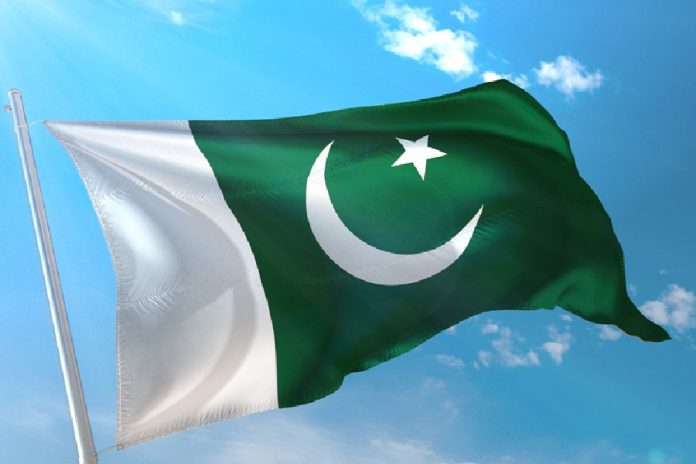By Girish Linganna
After prolonged negotiations, political leaders in Pakistan have successfully reached a consensus on a power-sharing arrangement for a new government. The ruling coalition will consist of the Pakistan Muslim League-Nawaz (PML-N), which enjoys support from the influential military, along with the Pakistan People’s Party (PPP) and various smaller factions.
The two main parties have agreed to reinstate Shehbaz Sharif as the prime minister and appoint Asif Ali Zardari, the spouse of the late former prime minister Benazir Bhutto, as the president. The newly formed government relies on the support of the military. The government in New Delhi perceives the multiparty coalition as lacking stability and strength, and has been closely monitoring the situation in its neighbouring rival country.
The concerns about vote manipulation during Pakistan’s February 8 election contribute to the reasons why the new government is expected to encounter significant pressure. Additionally, supporters of imprisoned former leader Imran Khan and his Pakistan Tehreek-e-Insaf (PTI) party, which holds the largest number of seats in parliament, are anticipated to exert strong influence on the government.
The PTI party managed to circumvent what they perceive as a government crackdown by fielding most of its candidates as independent candidates. There are allegations that the military supported Khan’s opponents during the election, leading some in India to argue that the election results undermined the credibility of the Pakistani army and its leader, General Asim Munir.
However, the parties that have a favourable relationship with the military have succeeded in preventing the PTI from forming the government. According to a senior security official who spoke to DW media House anonymously, it seems that the military has ultimately achieved its desired outcome of a feeble and compliant coalition led by preferred parties.
Nawaz Sharif expresses a desire for improved relations with neighbouring countries. Former diplomats and policy experts emphasize that the new coalition must prioritize addressing the economic crisis and internal security concerns in Pakistan as a starting point.
According to Meera Shankar, a former Indian ambassador to the US, who spoke to a media house, democracy in Pakistan remains fragile, with the armed forces continuing to exert a significant influence. Pakistan is currently facing multiple crises that require immediate attention and prioritization by the government.
The fact that Shehbaz Sharif has managed to stay in power gives us some hope. Nawaz Sharif, the brother of Shehbaz Sharif and former prime minister, has previously expressed a desire for improved relations with India. Since his return from exile, he has made a number of statements aimed at reconciliation and fostering better understanding between the two countries.
During the vote counting, as Nawaz Sharif expressed his hope for improved relations with’ our neighbouring country,’ he delivered an indirect message to India. He stated that, with the grace of God, we can expect better ties in the future.
Ajay Bisaria, India’s former high commissioner to Pakistan, mentioned that New Delhi chooses to observe Pakistan as it truly is, rather than how it should be. He indicated that the Indian government would probably remain silent regarding the accusations of election manipulation, despite the evident flaws in the electoral process.
In contrast, as Bisaria mentioned, the United States has described the election as “competitive.” He further explained that the US is more inclined to prioritize maintaining a favourable rapport with Pakistan’s army rather than openly endorsing democratic values and potentially opposing Imran Khan’s resistance.
United States referred to the election as “competitive,” it means that they acknowledged that there was a competitive and contested nature to the electoral process in Pakistan. According to the diplomat, the primary concern for India is whether the new government can effectively tackle the problem of terrorism originating from across the border.
He further added that India is fully aware that the Pakistani army holds the power to shape policy towards India. In the current circumstances, any civilian government will have limited influence over India-related matters. However, the Sharif family has a stronger history of making efforts to engage with India compared to Imran Khan and his three-year government under the PTI.
India and Pakistan have had ongoing conflicts regarding Kashmir and border skirmishes. In 2019, when India made changes to the legal status of the region, Pakistan responded by suspending bilateral trade. This has resulted in a current state of frozen diplomatic relations between the two countries.
According to Shanthie Mariet D’Souza, who shared her views with DW media , even though Pakistan has had formal civilian rule since 2008, the military still holds considerable influence over politics. D’Souza emphasized that the Pakistani military will continue to hold the power and make crucial decisions.
Regardless of the election outcome or the formation of a coalition government, D’Souza emphasized that civil-military relations in Pakistan heavily lean in favour of the military. According to her, Pakistan has never experienced a strong civilian government throughout its history, which helps explain why the India-Pakistan peace process has failed to gain significant traction. D’Souza shared these insights with the media house.
According to D’Souza, Nawaz Sharif’s pro-peace posturing lacks significance unless approved by the army. She adds that it seems unlikely for Islamabad to make any pro-peace gestures, as it would involve rejecting its steadfast positions on Kashmir, which could challenge the military’s authority. (IPA Service)
(The author is a Defence, Aerospace & Political Analyst based in Bengaluru.)


